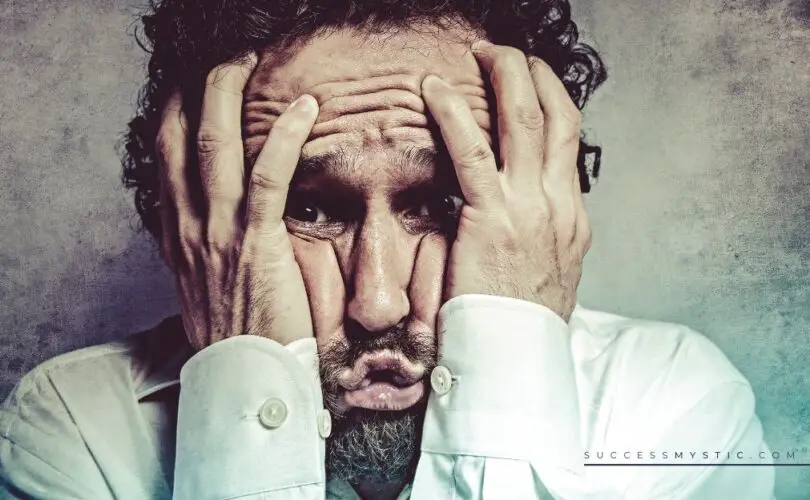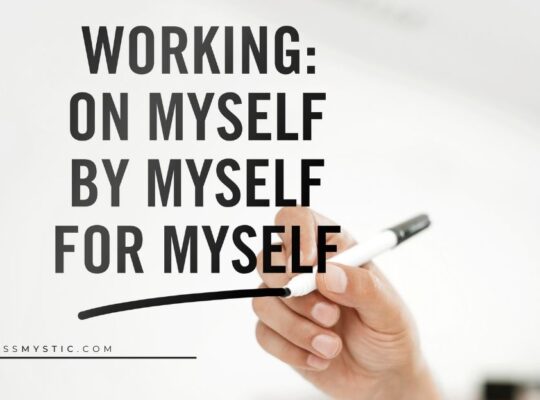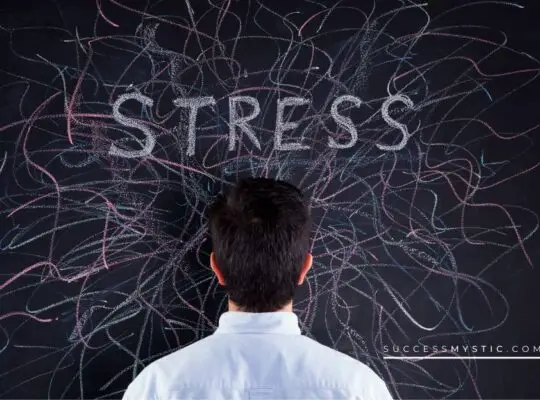The Impact Of Times of Crisis And Distress
Throughout history, crises and distress have been a part of people’s lives. Daily life can include many mild to moderate stressors like work stress, managing time and money, and stress from inter-personal relationships.
A person may also experience significant stresses in life through the loss of a job, divorce, or the death of a loved one. During times of crisis, such as natural disasters, community violence, wars, and pandemics, the coping mechanisms people use can be strained even further.
According to the United Nations (UN), depression and anxiety caused by stress cost the global economy one trillion dollars annually before the crisis events of 2020. The additional crisis events of a worldwide pandemic and community violence this year may cause psychological distress in nearly everyone affected by these emergencies.
The UN states that people who coped well with life stressors before these crises are now facing additional, multiple stressors and may be unable to manage their responses fully.
Humans prefer certainty. Much of the anxiety people feel today is related to wanting control of their lives but not having that control. Peoples’ income, health, and education are being affected in negative ways. Situations involving social isolation, restricted movement, and the lack of a plan and outcome for crisis affects peoples’ mental health and their behavior.
The American Foundation for Suicide Prevention states that anxiety can cause a person to:
- Feel on edge
- Be angry
- Feel helpless
- Experience sadness
- Become frustrated
- Try to avoid the crisis
For people who already had underlying mental health issues, a crisis can cause increased depression and less motivation to participate in activities of daily life. In times of crisis and distress, protecting your mental health becomes extremely important, but can be stressful under the circumstances.
The Center for the Study of Traumatic Stress highlights these current factors causing additional stress during a crisis:
- Frustration and boredom related to social isolation
- Inadequate food supplies
- Inadequate access to medical care
- Insufficient reliable information
- Fears about getting sick or infecting others
- Financial loss
- Stigmatization and rejection from society
- Adjustments needed return to a regular routine
The World Health Organization (WHO) divides these factors into social and mental health problems, all of which can affect peoples’ ability to cope with crisis.
Social problems:
- Pre-existing: poverty and discrimination of marginalized groups
- Emergency-induced: family separation, lack of safety, loss of livelihoods, disrupted social networks, and low trust and resources; and
- Humanitarian response-induced: overcrowding, lack of privacy, and undermining of community or traditional support.
Mental health problems:
- Pre-existing: mental disorders such as depression, schizophrenia, or harmful use of alcohol
- Emergency-induced: grief, acute stress reactions, harmful use of alcohol and drugs, and depression and anxiety, including post-traumatic stress disorder; and
- Humanitarian response-induced: anxiety due to a lack of information about food distribution or about how to obtain basic services.
Yet despite these crises and distress stressors, multiple organizations have identified ways to help you find comfort.
Finding Comfort In Times Of Crisis And High Stress
1| Reduce Crisis Induced Stress
The Minnesota Department of Health compiled these tips for reducing crisis-induced stress:
- Focus on what you can control– including your thoughts, behaviors.
- Remember that you are resilient, and so is humankind. We will get through this.
- Do what you can to reduce your risk; take comfort that you are caring for yourself and others.
- Use technology to connect with others frequently.
- Look for the good stuff; the helpers, time with family, and opportunities to pull together. Write down three things you are grateful for each day.
- Limit exposure to news or social media updates.
- Use reputable sources of news, avoid speculation and rumors.
- Model peaceful behavior for those around you. Remember, everyone experiences stress in different ways.
- Don’t let fear influence your decisions, such as hoarding supplies.
- Be gentle with yourself and others.
- Create a regular routine, especially for children and when working from home.
- Maintaining a healthy diet and exercise routines to help your immune system and mental health.
- Spend time in nature while adhering to social distancing guidelines.
- Reflect on your reactions. Many who have experienced trauma may be triggered by feelings of powerlessness. Understanding what you are feeling can help you consider how you want to respond to the triggers.
- Practice meditation, yoga, or other mind-body techniques. Find apps or online videos to help.
- Reach out if you need to talk. There are local and national hotlines and warm-lines that can help.
These tips revolve around focusing on what you can control. By “looking for the good stuff,” you focus your mindset on the good things that happen instead of dwelling on the uncertainties of negative situations. Make sure your information sources are trustworthy and accurate.
While information may be updated during a crisis, avoid conspiracy theories or disaster scenarios and thinking. Find comfort in nature, routines – even if they’re new ones – and by being gentle with yourself.
Experiencing stressful moments doesn’t mean you will feel stressed all the time. And be mindful of your physical health. Maintain a healthy diet, get regular exercise, and practice relaxing mind-body techniques.
2| Work/Life Balance
Many people are now working from home, adding additional stressors to their daily lives. Without the routines from an office or work environment, it’s easy to feel stressed and uncertain.
You can find comfort through these ideas, also from the Minnesota Department of Health:
1. Stick to a routine. Create a schedule that includes time for work as well as relaxation and self-care.
2. Dress for the work and social life you want, not the work and social life you have. How you dress can impact your mood. Wear bright colors or try something different with your hair.
3. Get outside at least once a day, for at least thirty minutes. It is amazing how much fresh air can do for your emotions. If you can’t get outside, open the windows, and use a fan.
4. Find some time to move each day, again daily for at least thirty minutes. Take movement breaks instead of sitting at your desk or on the couch all day.
5. Reach out to others, also once daily for thirty minutes. Try to do FaceTime, Skype, phone calls, texting—connect with other people to seek and provide support. Your conversations don’t need to focus on the crisis. Remind each other of fun times together or plans, and dreams for the future.
6. Stay hydrated and eat well. Staying physically healthy is essential during times of crisis.
7. Give everyone the benefit of the doubt. It is important to move with grace through blowups, to not show up to every argument you are invited to, and to not hold grudges and continue disagreements.
8. Create a comfort space. Design an area where you don’t do work. Make it comfortable and restful by using pillows, blankets, music, and soft lighting.
9. Focus on safety and attachment. Don’t get wrapped up in meeting expectations in all domains. Focus on strengthening connections between family members and loved ones.
10. Lower expectations and practice radical self-acceptance. Realize that you are operating with stress and anxiety. Don’t expect perfection in yourself or others.
11. Limit social media and COVID conversation. Find a few trusted sources that you can check in with consistently, limit it to a few times a day, and set a time limit for yourself on how much you consume.
12. Notice the good in the world, the helpers. There are a ton of stories of people sacrificing, donating, and supporting one another in miraculous ways. It is important to counterbalance the heavy information with the hopeful information.
13. Help others. Helping others gives us a sense of usefulness when things seem out of control.
14. Find something you can control. In moments of uncertainty, control your little corner of the world. Organize your bookshelf, purge your closet, and finally put together that furniture.
15. Find a long-term project to dive into. Find something that will keep you busy, distracted, and engaged to take breaks from what is going on in the outside world.
16. Engage in repetitive movements and left-right movements. Research has shown that repetitive movement (knitting, coloring, painting, clay sculpting, jump roping, etc.), especially left-right movement (running, drumming, skating, hopping), can be effective at self-soothing and maintaining self-regulation.
17. Find lightness and humor in each day. Be in the present and enjoy what makes you happy.
18. Reach out for help. If you are having difficulty coping, seek out help.
3| Recognize and Manage Your Stress Reactions
During times of increased stress, people respond with four types of reactions, physical, emotional, behavioral, and cognitive. The Minnesota Department of Health states that it’s important to recognize your reactions to stress and how to manage them.
4| Physical Reactions
Stress causes your body to react. You may experience low energy, exhaustion, sleep problems, headaches, muscle aches, appetite change, increased heart rate, or stomach upset. Talk with your doctor about any significant changes because many physical stress reactions can also be caused by physical disorders and diseases.
Managing Physical Reactions
Health and safety are the number one priority when managing physical reactions to stress. Healthy eating, routine exercise, and attention to your mind-body connection are crucial. Maintaining your physical health and well-being will have a positive impact on how you manage physical stress reactions.
5| Emotional Reactions
You may experience anxiety, worry, fear, sadness, tearfulness, or loss of interest in regularly enjoyable activities. You may also feel frustration, irritability, anger, or helplessness.
Strong feelings that won’t go away, last longer than a few weeks, or are interfering with normal functioning may be a symptom of depression or anxiety and are a sign that you should seek professional mental health help.
Managing Emotional Reactions
Stay calm through mind-body practices such as yoga, meditation, and other relaxation techniques. Practicing living in the present and avoid focusing on past problems or unknown future outcomes. Find something to be grateful or joyful for every day.
6| Behavioral Reactions
Some behaviors triggered by stressful events need to be stopped because they not only harm your physical and mental health, but they also affect others. Harmful behaviors include increased dependence on nicotine or alcohol, substance abuse, gambling, bullying, and blaming others.
Managing Behavioral Reactions
Stay connected to other people. Reach out to family and friends. Anxiety can create behaviors that add to the feeling of depression and poor behavioral reactions. Physical exercise can also decrease the feeling of anxiety and reduce harmful behaviors.
7| Cognitive Reactions
Stress may affect your ability to think clearly, pay attention, solve problems, or remember. These are common reactions in times of increased stress. They are signals to you to manage your actions and care for yourself.
Managing Cognitive Reactions
Take control of yourself and use your control to manage your cognitive reactions. Learn to pause and consider how your reaction will affect your situation. Create goals to help you through crisis and make plans that you can update if things change. Practice mindfulness of the moment to focus on what you can control at the time.
8| Children and Adults
People can experience a wide variety of negative reactions during and immediately after a crisis. Distress during a crisis can continue even after a crisis due to unresolved issues or reminders of previous stressors.
The National Child Traumatic Stress Network identifies these types of reactions in children, teenagers, and adults, and ways to reduce crisis reactions:
- Intrusive reactions may include distressing thoughts or mental images while awake or while sleeping, emotional reactions to reminders of the experience, and flashbacks, or feeling like the experience is happening over and over again.
- Avoidance and withdrawal reactions may include avoiding talking, thinking, or acknowledging feelings about the crisis and avoiding reminders of the crisis events. They may also include restricted emotions or feeling numb, feeling of detachment or social isolation, and loss of interest in normal activities or activities that were previously enjoyable.
- Physical arousal reactions may include startling easily, feeling jumpy, or continually being on the lookout for danger. They may also include feelings of frustration, angry outbursts, sleep problems, and problems concentrating.
The organization suggests these actions that don’t and do help:
Actions that don’t help include using alcohol or drugs to cope, not talking about the crisis, withdrawal from family and friends, excessive TV watching or video game playing, taking unnecessary risks, and blaming others.
Actions that do help include spending time with positive people and talking with people for support. They also include focusing on basic, practical actions like cooking food or yard work, and participating in positive, create hobbies.
Maintaining your physical health by healthy eating, exercise, keeping to a routine or schedule, and proper sleep are also important actions. You may also find that joining a support group promotes a more positive reaction to crisis.
9| Grief and Crisis
The Substance Abuse and Mental Health Services Association reminds people that grief is a common emotion that is often associated with crisis. Community violence and feelings a loss of safety, death, and loss related to income, stability, and opportunity can contribute to feelings grief.
Grief reactions continue until you can accept the crisis loss and adjust to the changes the crisis created in your life. It’s different for each person depending on his or her current mental and physical health, coping styles, culture, family supports, and previous life experiences.
How long people grieve may also depend on the resilience of their community and the ability of their community or social circle to adapt to change.
Talking with people about your grief can help. Understand that while you may experience feelings of grief, they do lessen over time. Allow yourself to feel both joy and sadness as you adjust to your loss.
The organization points out that crisis and grief can also create positive reactions that include:
- Becoming more understanding and tolerant of others and yourself
- Having increased appreciation for relationships and loved ones
- Being grateful for what you have and for those in your community who are loving and caring
- Experiencing an enhanced spiritual connection
- Becoming more socially active
You can build positive stress and grief reactions by finding support and working to keep a positive mindset. Relaxation techniques, like yoga and meditation, can help. Practicing gratitude and kindness also support a positive mindset.
Many people find that helping others helps them to cope positively with stress and grief and to find comfort.
10| Boundaries and Self-Care
In times of crisis and distress, it is crucial to set boundaries to protect your mental health. Researchers at the University of Colorado, Boulder, offer these findings for setting personal and social boundaries:
Personal Self-Care Boundaries
Limit your media consumption about crisis and distress in the world. Repeatedly viewing negative stories information can lead to anxiety, depression, and cause you to focus more on the bad than on the good in the world. Stay informed through trusted sources by creating a viewing routine and limiting time spent online or watching media.
Turn of alerts and notifications. Many media outlets offer to alert your phone or email with breaking news. However, many of these news stories don’t directly affect you and can cause additional distress.
If you worry that you will miss an alert or are constantly waiting for another announcement, turn off these notifications or consider limiting them to local weather and traffic or news that affects you directly.
Find media stories about people helping each other. Even in times of crisis and distress, there are still good things happening. Focus on uplifting stories about human connection and kindness.
Distract yourself with videos of nature scenes or animals. Keep your media contact from being completely negative and stressful by looking for positive stories.
Set Boundaries with Other People
Everyone around you may be dealing differently with a crisis. If you cannot limit your interaction to positive people, you need to set healthy boundaries with others to protect your mental health. The researchers suggest using these phrases to limit negative conversations with others:
“I don’t want to talk about this right now. Can we talk about something else instead?”
“I appreciate that you want to help me stay informed by sharing news articles and links, but I’m good for right now/I’d prefer if you didn’t.”
“I respect your opinion on this situation, and I am allowing myself to come to my own conclusions.”
“I know you’re trying to be helpful, and I appreciate it, but I need space to experience and process my own emotions about this.”
11| Journaling
Self-care means dealing effectively with your emotions during times of crisis and distress. One way to process your emotions is journaling. Keeping a journal of your thoughts and feelings helps you connect with what is causing you anxiety and also helps you discover ways of managing stress.
The researchers suggest using journaling to consider these questions and focus your thoughts:
- What can I do to remain connected to people during a crisis?
- What am I learning about myself through this process?
- What thoughts are most helpful to me during this time?
- How am I protecting myself from things that may provoke panic or anxiety?
- How can I take care of myself?
- How can I help someone else?
- What do I want to spend my time doing more of?
- How can I more fully enjoy the present moment?
- What’s the most meaningful thing for me to focus on today?
- How can I make today a little bit better than yesterday?
- How can I help myself be successful in this situation?
By setting boundaries and dealing with your emotions through journaling, you can protect your mental health and find comfort.
Additional Tips
The researchers also suggest these additional tips for practicing self-care:
- Drinking water throughout the day
- Staying in touch with loved ones
- Being hopeful
- Getting outdoors
- Continuing or starting therapy online
- Meditating
- Exploring new hobbies or interests
- Unfollowing or muting social media accounts that are too much for you right now
- Practicing gratitude
12| Helping Others
Finding comfort during times of crisis and distress is also something you can share. Psychologists agree that people are influenced by the emotions and actions of others. When you are calm and have found comfort, sharing your positive attitude with others can support them and in turn, they can provide support back to you.
The National Center for Post Traumatic Stress Disorder offers these five key principals for sharing calmness and comfort:
Promote a Sense of Safety – Everyone is affected differently by a crisis. The worst-case scenario will not happen to everyone. By understanding risk and how to avoid it, you can increase your sense of safety. Share your understanding of ways to feel safe with others through discussion and by modeling cautious, yet optimistic behavior.
Promote a Sense of Self-Control – Your response to distress and crisis is within your control. While you may not be able to change what happens int eh world, you can control how you react to it. Remind others that they are responsible for their reactions and support their choices to be positive and comfortable.
Promote a Sense of Connectedness – Humans are social beings. Technology can help you connect with others, which boosts both your and their mental health. Take time to be kind to strangers. You don’t know how other people are reacting to a crisis, so your kindness may be what helps support and boost their mental health.
Promote a Sense of Calmness – Yoga, meditation, and other mind-body techniques can help provide a sense of comfort and calmness. Offer these ideas to others who need support. You can invite them to join a class or use the same video you do. Discussing the emotional benefits of these techniques with others can help support both you and them.
Promote a Sense of Hope – There are positive things happening even during times of crisis and distress. Remind yourself and others to be in the present and avoid worrying about the future. Practice and display gratitude for everyone to see.
The Mental Health Commission of Canada offers these important reminders when talking to someone who is experiencing a crisis or distress:
- Tell them you are there to listen and help find the next step. Listen fully, without telling your own story, and offer suggestions, not advice, on things that have helped you.
- Pause to reflect on what the other person is saying and share back your understanding, so they know they have been heard. You can use phrases like “I hear you saying that (then rephrase what they said)” and “I can understand why (blank) would make you feel (blank).”
- Ask the other person if they would like information about services or ideas that may help them. Offer to assist them in finding ways to increase their comfort and calmness.
- Ask questions to allow the other person to think through their feelings and responses. Don’t judge their answers. Be supportive and accepting of how they feel.
- Take care of yourself. Practice techniques that boost your mindset and provide comfort. You can’t offer comfort if you don’t feel it.
- If you feel someone is having a mental health emergency, help them by contacting a support line or local authorities like 911.
Final Thoughts
There are many ways to protect your mental health and find comfort in times of crisis and distress. Scientists, researchers, and doctors have provided multiple ideas and strategies to find calmness and comfort.
Practicing these techniques throughout life can help prepare you for times of crisis and distress. You can also comfort others who need support.
Mental Health Resources
Protecting your mental begins with proactive steps. If you need help do not hesitate to reach out to these organizations who can offer you professional assistance, mental health resources near you and guidance.







